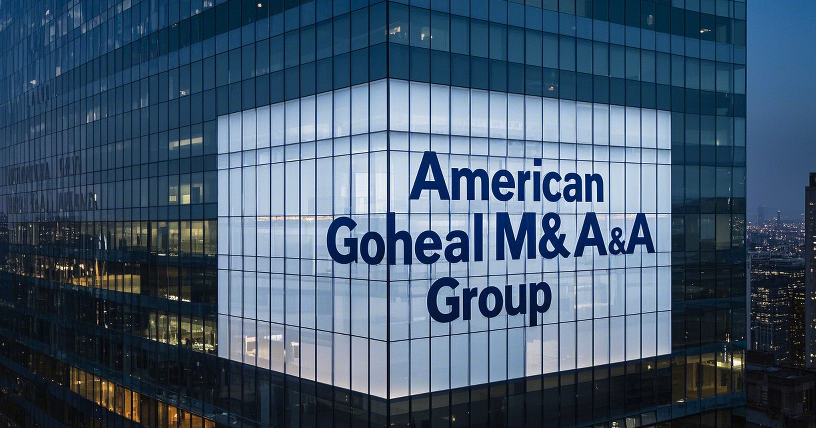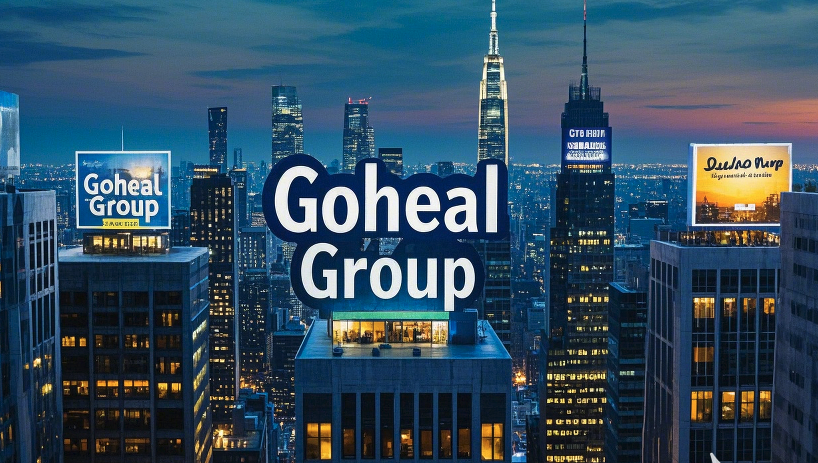In 2025, the global private equity (PE) market is ushering in a historic change. The scale of China's PE market has exceeded 8 trillion yuan, and the annual compound growth rate has stabilized at more than 15%. Major capital players are competing to target high-quality assets. In this capital feast, the acquisition of listed companies' control rights has become a "new battlefield" for PE fund layout.

American Goheal M&A Group
According to data from the Zero2IPO Research Center, in 2024 alone, private equity funds invested in the field of consumer upgrades will reach 200 billion yuan, a year-on-year increase of 30%, the number of newly raised funds in the medical and health field will increase by 25%, and the scale of funds attracted by the hard technology track will increase by 40% year-on-year. Faced with such a frenzy of investment, people can't help but wonder: Is the accelerated layout of global PE capital giving birth to the "golden age" of listed companies' control acquisitions? Goheal observed that the deep logic of the capital market is changing, and the real opportunities are often hidden in the changes.
Global PE capital is soaring, why target listed companies?
If the "main battlefield" of PE funds in the past decade was start-ups and growth companies, then the current trend is obviously different. More and more PE funds are turning their attention to listed companies, especially those with undervalued valuations, dispersed shareholders, and turbulent management. These companies not only have mature business models, but also have faster exit channels, such as secondary market transactions, privatization, mergers and acquisitions, etc., which allows PE capital to realize value in a shorter time.
Goheal found that the investment strategy of global PE institutions is currently changing, mainly manifested in:
1. Transformation from VC (venture capital) to M&A PE - the market's tolerance for "burning money for growth" has decreased, and PE is more inclined to acquire mature companies rather than invest in early projects.
2. More "control acquisition" strategies are adopted - PE is no longer satisfied with holding a minority stake, but hopes to directly control the company's strategic direction by acquiring controlling rights.
3. Prefer low-valuation, high-cash flow companies - after the valuation bubble bursts, high-quality assets are more attractive, and PE is willing to spend a lot of money to acquire companies with underestimated market value.
Once PE funds become controlling shareholders, they will improve corporate profitability in a short period of time by optimizing management, cutting costs, adjusting strategies, etc., and eventually exit at a higher valuation. This model has been tried and tested in the European and American markets, and is now spreading to the global market at an accelerated pace.
Who is the biggest winner in PE controlling acquisitions?
When PE funds aggressively acquire controlling stakes in listed companies, who will benefit the most in the market? Generally speaking, the winners can be divided into the following three categories:
The first category: PE funds themselves.
For PE, the core logic of controlling acquisitions is "buy low and sell high". When a company's market value is significantly lower than its actual value, or its operating efficiency is low but it still has potential, the entry of PE funds often means a thorough "reshaping of value".
In 2024, Blackstone Group acquired HPS Investment Partners, a leading global credit investment management company, for approximately US$12 billion. The transaction expanded Blackstone's private credit business to approximately US$220 billion, and is expected to increase private market fees (AUM) and management fees by approximately 40% and 35%, respectively. This "capital magic" is the meaning of the existence of private equity funds (PE funds).
The second category: original shareholders.
In some cases, the entry of PE means a capital premium. For example, when a company has been undervalued for a long time and the market lacks liquidity, the acquisition offer of PE capital is often much higher than the secondary market price. In a case that Goheal once operated, the major shareholder of a listed company urgently needed to exit due to capital chain problems. The PE fund acquired the controlling stake at a premium of 30% above the market price, and finally allowed the original shareholder to successfully cash out and leave.
The third category: the company itself.
For the acquired company, the entry of PE may be a "rebirth". Although some listed companies have good products and market foundations, they are in trouble due to management problems or poor capital operation. Once PE takes over, the company's governance structure is optimized and the performance may usher in a turning point. For example, in 2023, after Hillhouse Capital acquired the controlling stake of a pharmaceutical listed company, it increased its profitability by more than 50% by replacing the management and accelerating R&D investment. This shows that the involvement of PE is not just a capital game. In some cases, it can really promote the growth of the company.
Is the "golden age" really coming?
So, does the crazy layout of global PE capital mean that the acquisition of listed companies' control rights has entered a "golden age"? From the current market situation, the answer to this question is not absolute, but there are several trends worth paying attention to:
1. Capital market valuation adjustment creates entry opportunities. Since 2024, the global market has experienced a round of large-scale valuation corrections, and the stock prices of many companies are far below the historical average. PE capital is taking the opportunity to "bottom-fish".
2. Loose liquidity and abundant PE capital. Although there are still uncertainties in the global economy, the monetary policies of central banks in various countries are relatively loose, allowing PE funds to have sufficient "ammunition" to carry out mergers and acquisitions.
3. Market-oriented reforms are accelerating, and control transactions are more active. Especially in China, the promotion of policies such as registration system reform and mixed ownership reform of state-owned enterprises has made control transactions more market-oriented, and PE capital can enter listed companies more conveniently.
However, PE's control acquisitions also face some challenges, such as policy supervision, shareholder games, industry cycle fluctuations and other factors. Without a clear exit path and refined operational capabilities, PE's control acquisitions may also become a "hot potato".
Conclusion: PE is advancing rapidly, what do you think?
Global PE capital is being deployed at an alarming speed, and controlling acquisitions have become the main theme of the market. Goheal believes that this is not only a game of capital, but also a process of industrial upgrading and value reshaping. For entrepreneurs, this is an opportunity to change their destiny; for investors, this is a trend worth paying attention to.
Do you think that controlling acquisitions by PE capital can really promote corporate development, or is it just a "gamble" in the capital market? Would you prefer to invest in PE-led companies, or believe more in the independent growth of traditional companies? Welcome to leave a message in the comment area to discuss and explore the future trends of the capital market together!

Goheal Group
[About Goheal] Goheal is a leading investment holding company focusing on global mergers and acquisitions, focusing on the three core business areas of acquisition of listed company control, mergers and acquisitions of listed companies, and capital operations of listed companies. With its deep professional strength and rich experience, it provides companies with full life cycle services from mergers and acquisitions to restructuring and capital operations, aiming to maximize corporate value and achieve long-term benefit growth.